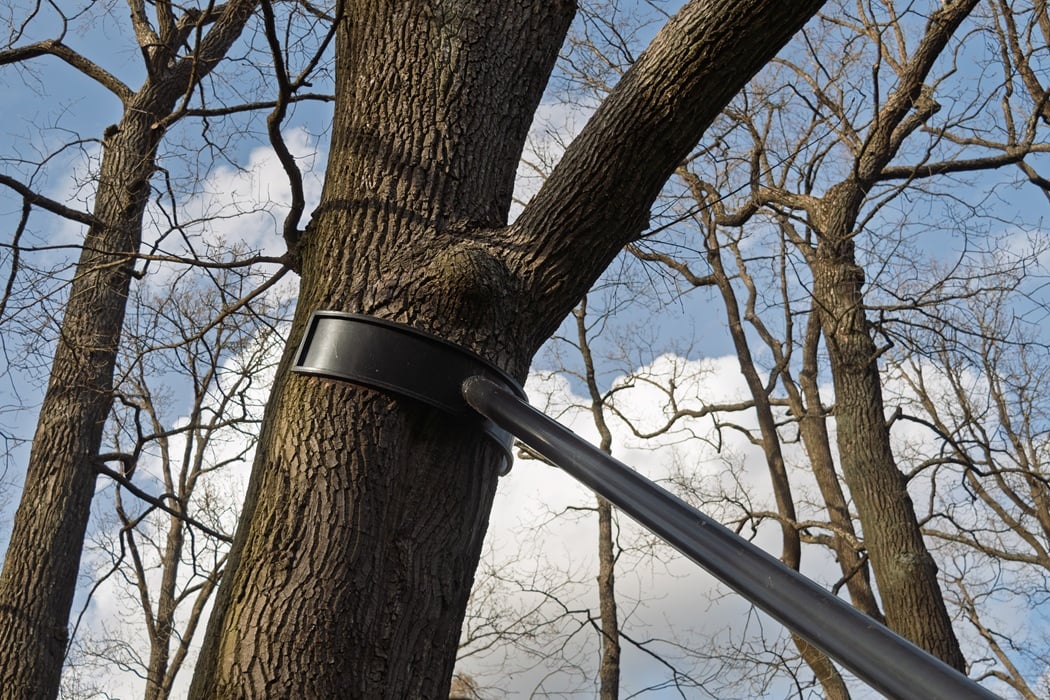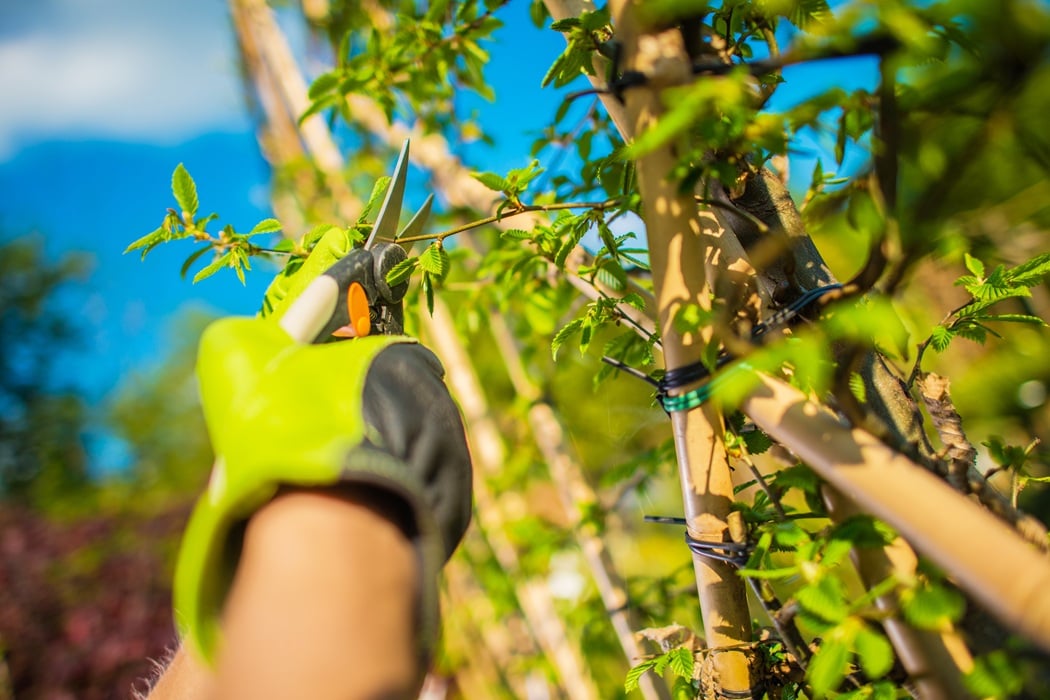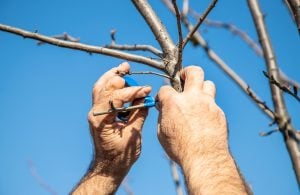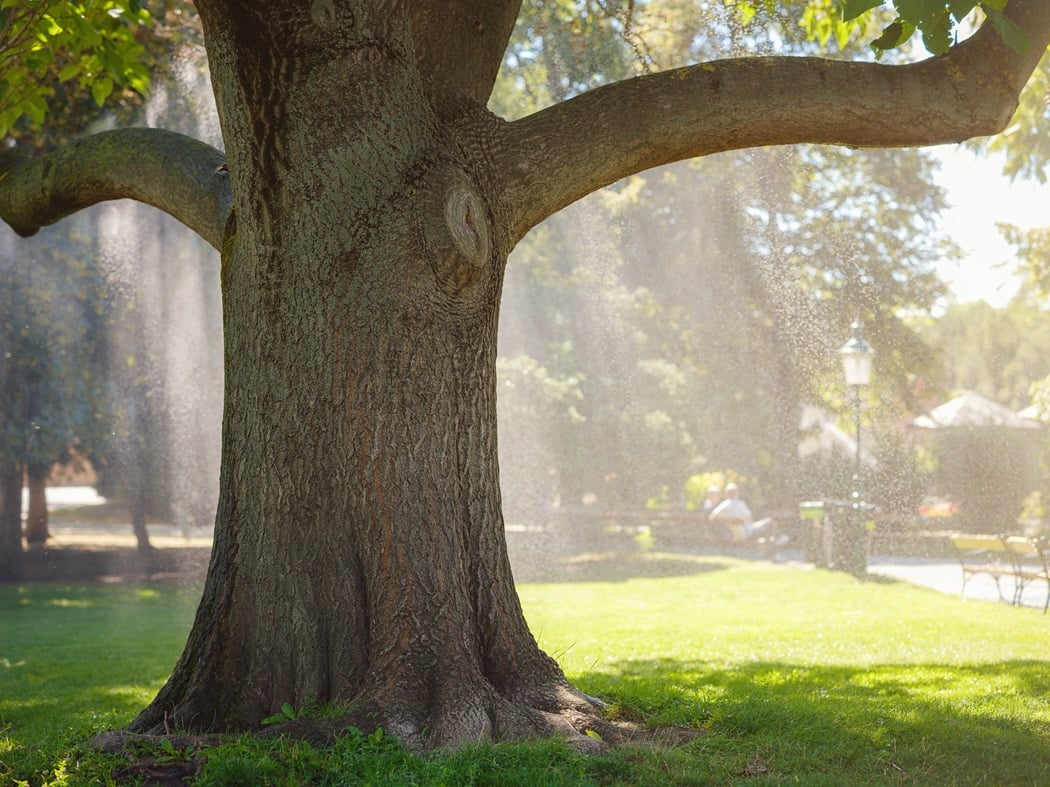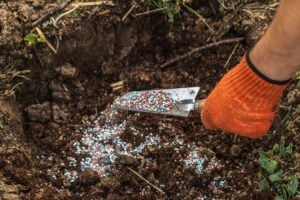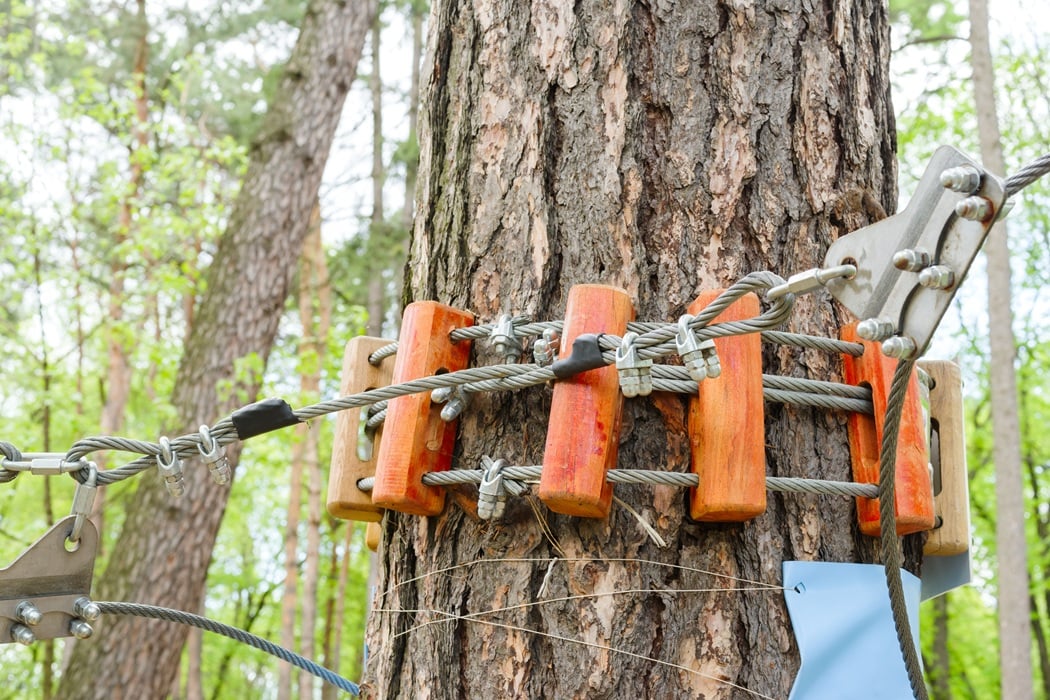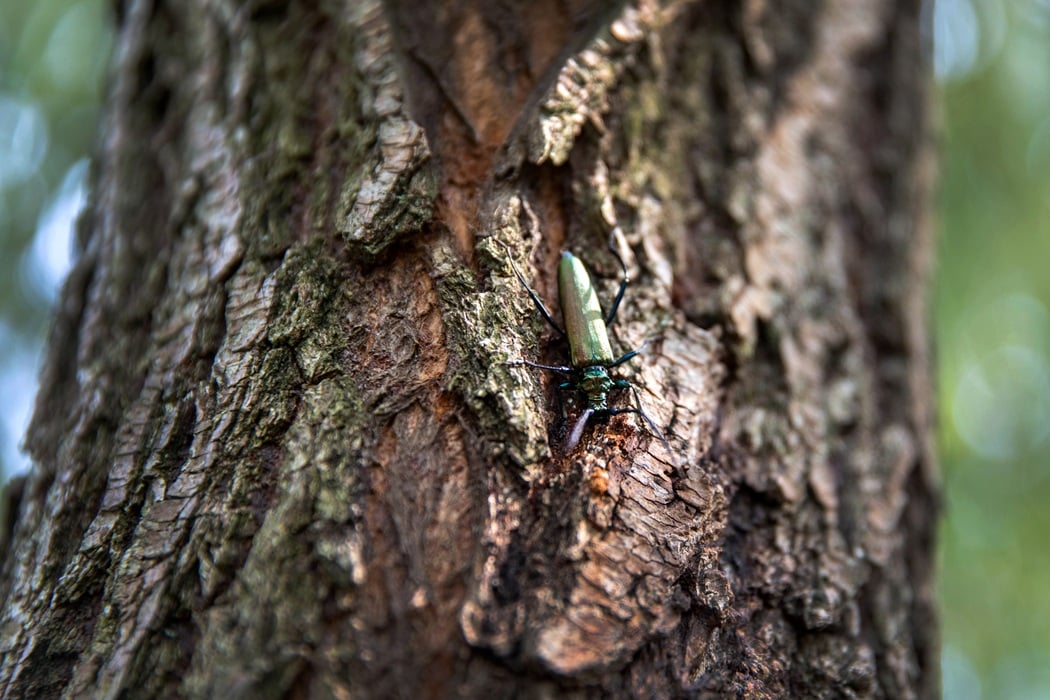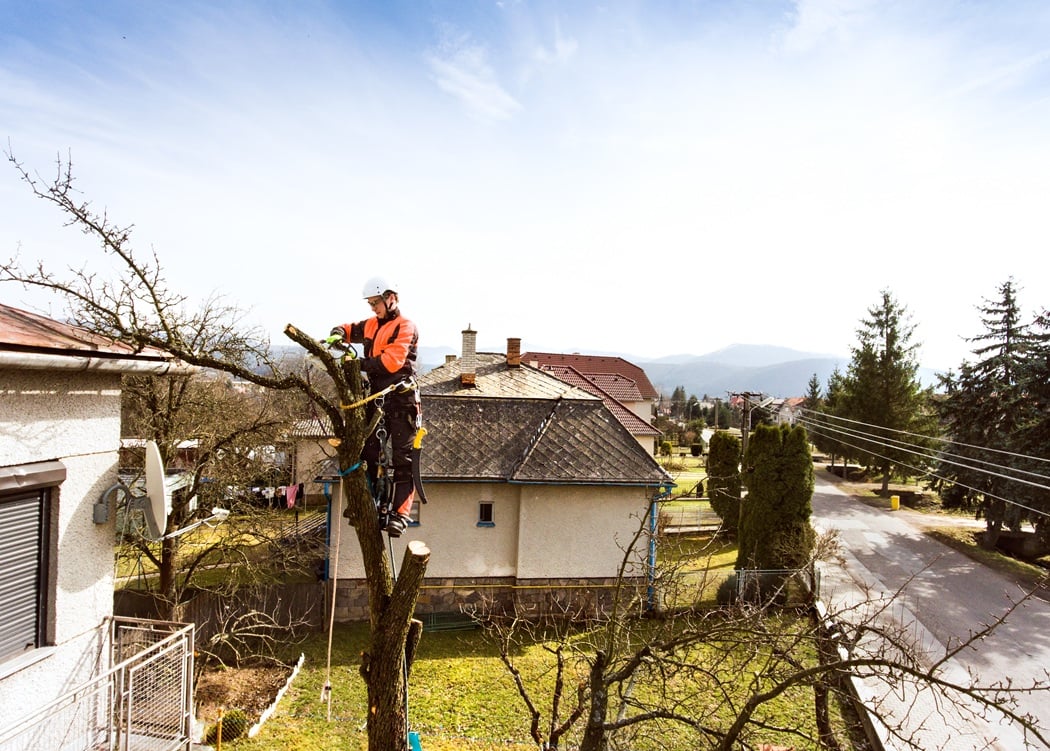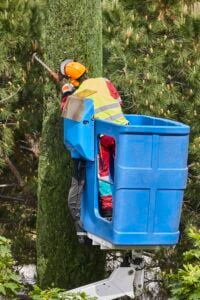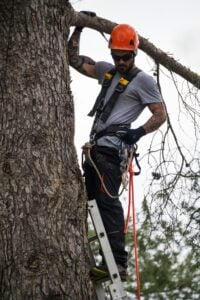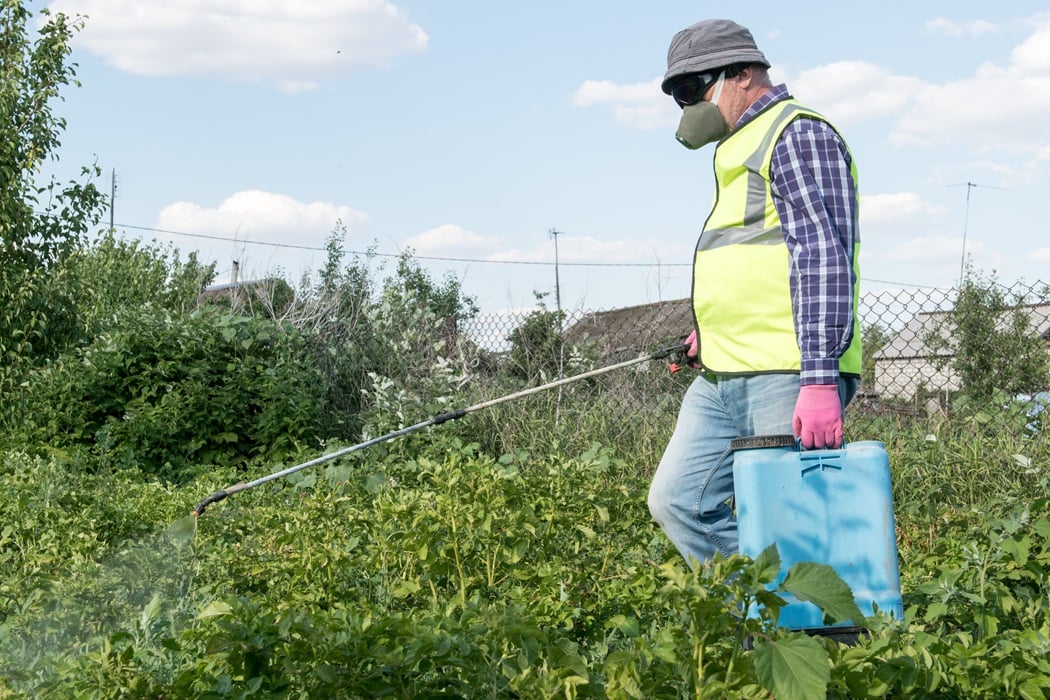Montclair homeowners who treasure their mature shade trees know the anxiety that comes with every strong storm. You see a heavy limb swaying over your roof, or notice a deep split forming where two trunks meet, and you start wondering if the next wind gust will be the one that causes real damage. The truth is, many structurally weak trees don’t need to be removed. With professional tree cabling and bracing from American Tree Experts, you can reinforce vulnerable trees, reduce storm risk, and extend the life of the landscape you’ve invested in for decades.
In a town like Montclair, mature trees are part of the neighborhood’s character. Removing them is often a last resort. Cabling and bracing provide a smart alternative when done correctly.
Table of Contents
What Is Tree Cabling and Bracing?
Tree cabling and bracing are structural support techniques designed to reinforce weak limbs, split trunks, or co-dominant stems in mature trees.
How Tree Cabling Works
Cabling involves installing high-strength steel cables in the upper canopy. These cables:
- Limit excessive limb movement
- Reduce stress on weak branch unions
- Help redistribute weight across the canopy
The goal is not to make the tree rigid. It’s to help it move safely, working “in unison” instead of tearing itself apart during wind or heavy snow.
How Tree Bracing Works
Bracing uses threaded steel rods inserted through split trunks or weak crotches. These rods provide rigid, direct support and prevent further separation. If you’ve ever seen a mature oak with a visible crack running down the trunk, bracing may be what keeps that tree standing for another decade or more.
Static vs. Dynamic Support Systems
There are two primary system types:
Static Systems
Traditional steel cables that allow minimal movement. Best for severely weakened structures.
Dynamic Systems
Flexible synthetic systems that allow natural sway while still reducing stress. Often used when some movement is beneficial for growth. A proper evaluation determines whether a system is appropriate.
Why Mature Trees in Montclair Often Need Structural Support
Montclair’s environment presents unique challenges:
- Nor’easters and high wind storms
- Heavy wet snow loading limbs
- Freeze-thaw cycles that widen the existing cracks
- Mature, decades-old trees planted close to homes
Too many homeowners spend thousands on roof repairs or driveway damage when early structural reinforcement could have prevented the failure.
Tree cabling helps protect:
- Homes and garages
- Vehicles
- Walkways and driveways
- Family members and neighbors
But just as important, it preserves historic and sentimental trees that can’t simply be “replaced.”
Is Cabling a Tree a Good Idea?
This is one of the most common questions homeowners ask. The answer: Yes, when the tree is structurally compromised but otherwise healthy. Cabling is a good idea if:
- The tree has co-dominant stems with weak unions
- There is a visible split or crack
- Heavy limbs extend over structures
- The tree is a high-value landscape feature
However, if the tree is severely decayed or structurally unsound beyond repair, removal may be the safer choice. That’s why a professional evaluation is critical.
What Makes Trees Last Longer?
Homeowners often ask what truly extends the life of a mature tree. It’s rarely just one thing. Longevity depends on:
- Proper pruning
- Structural reinforcement when needed
- Pest and disease management
- Nutrient support
- Ongoing inspections
At American Tree Experts, cabling is often part of a broader plant health care strategy. Supporting the structure without addressing overall tree health is only half the solution.
What Is the Best Way to Cable a Tree?
The best way to cable a tree always begins with a certified arborist assessment. A proper installation includes:
- Evaluating structural integrity
- Identifying weak unions or splits
- Determining load distribution
- Selecting appropriate hardware
- Installing cables at the correct height and angle
Improper cabling can cause more harm than good. Too tight, and you restrict growth. Too loose, and it provides little protection. Poor placement can even introduce new stress points. Professional arborists, especially those with ISA certification, understand how trees grow and respond over time.
When Cabling Is Not Enough
Not every tree can be saved. If structural defects are combined with advanced decay, extensive root damage, large hollow cavities, or severe pest infestations, removal may be the safer option.
American Tree Experts specializes in both tree removal and tree reinforcement. Their team doesn’t automatically recommend cutting; they evaluate honestly and explain the options clearly. If removal is necessary, it’s handled safely and efficiently. If preservation is possible, they’ll fight to save the tree.
Protecting Your Trees Starts with a Professional Evaluation
Tree cabling and bracing are not DIY projects. They require:
- Climbing equipment
- Structural knowledge
- Proper hardware
- Annual inspection plans
Most systems require yearly evaluations to ensure the hardware isn’t causing bark damage as the tree grows.
American Tree Experts has been serving Montclair since 1934. As a third-generation family business with an ISA Certified Arborist and a New Jersey Licensed Tree Expert on staff, they understand both the science and the local landscape. They don’t oversell, rather they assess, explain, and protect.
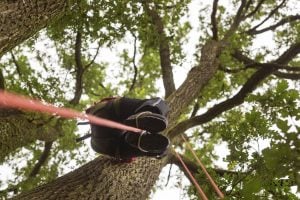
Schedule a Tree Cabling Consultation in Montclair
If you’re concerned about a mature tree on your property, especially one hanging over your home or driveway, don’t wait for the next storm to make the decision for you.
For more information, call American Tree Experts at (973) 744-6091 or email am*******************@***il.com. A professional evaluation today could extend the life of your tree for years and give you peace of mind the next time the wind picks up.Tree Cabling and Bracing

